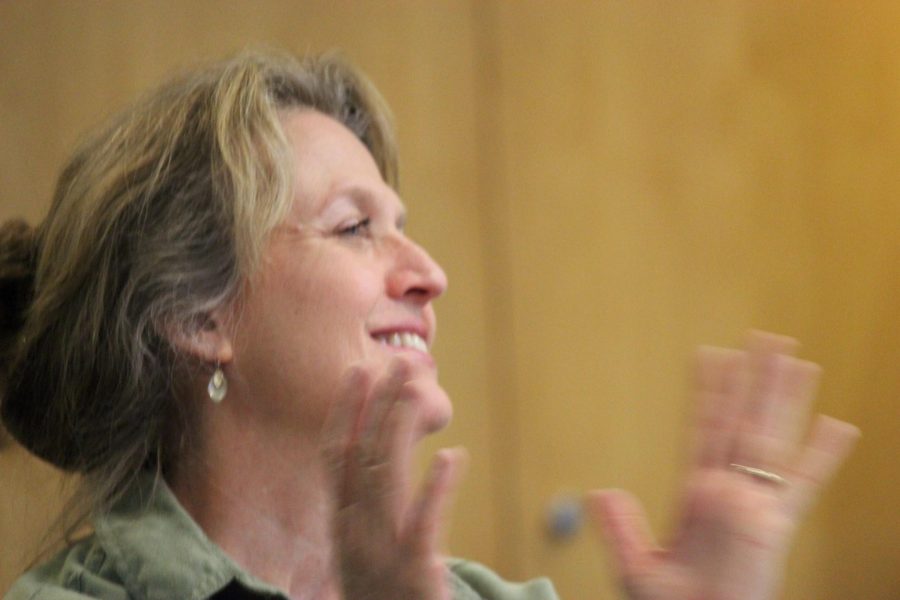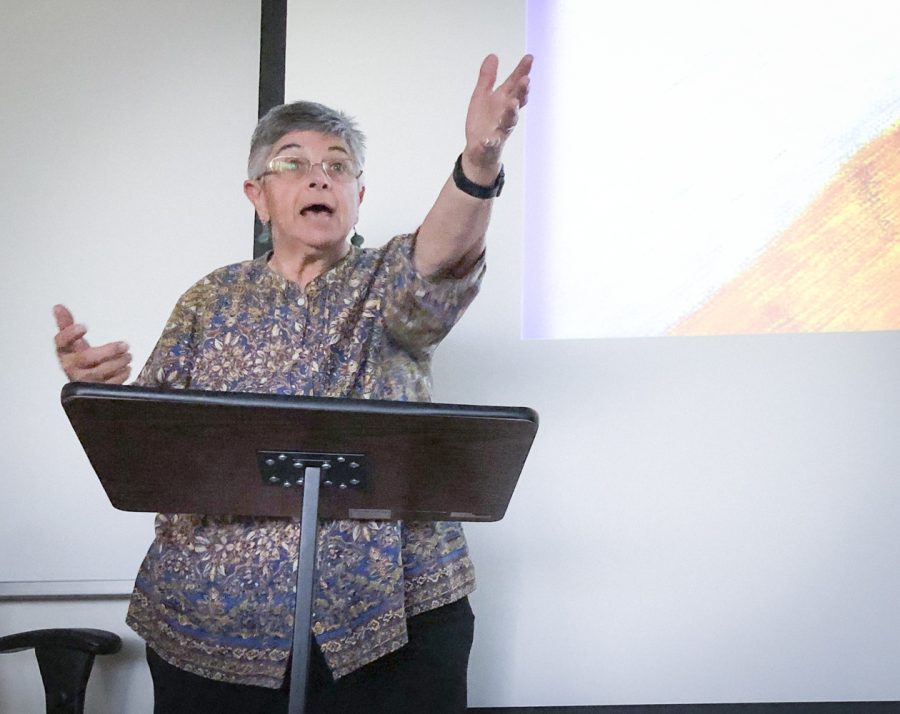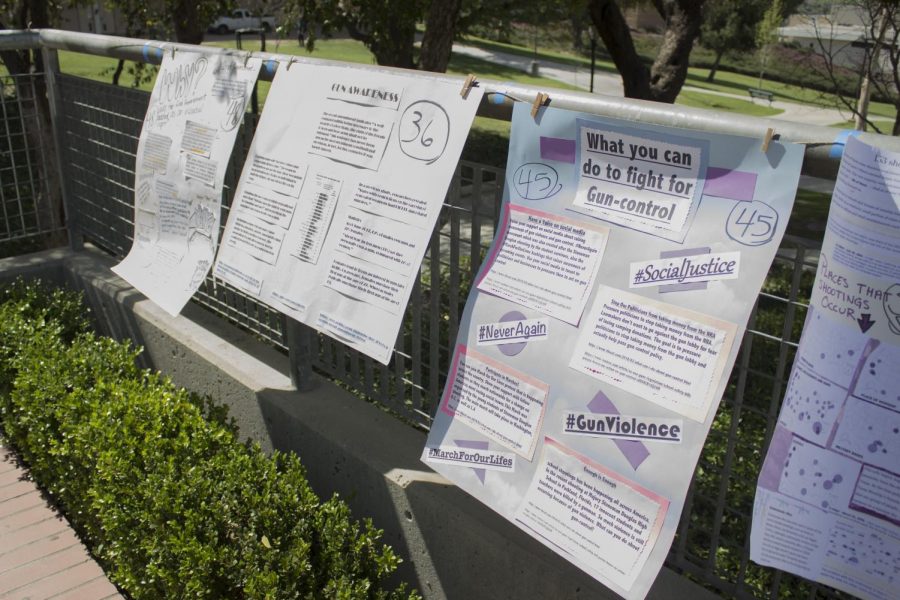Melody Mansfield will be giving a preview of her new collection of stories this Oct. 16 at “The Read” at the Moorpark College Learning/Resources Library at 5:30 p.m..
Mansfield is the author of the novel “The Life Stone of a Singing Bird” published in 1996 by Faber and Faber Inc. and the fiction novel “A Bug Collection” published this past Oct. 1. As an English teacher at Milken Community High School, she has been working for the past twelve years, directing the creative writing program. Her short fiction, essays, and poetry have appeared in a variety of literary, academic, and commercial publications including Thought Magazine, Inside English, The Pedestal, Fickle Muses, Wild Violet, The Rectangle, and Parent’s Magazine. She is currently working on a semi-autobiographical account of her years as a ballet dancer in New York City.
Q: How would you describe your book to someone that hasn’t read it yet?
Melody Mansfield: We have a little text on my website and it says ‘A humorous and heartbreaking look at the complexities of the human condition through the compound eyes of bugs’. It’s about depression, and disabilities, a part of love and death and what it means to be alive and all their changes. But it’s all very condensed because they are bugs and they only have just a little time and there’s lots of sex so it’s definitely not a children’s book. It’s kind of dark.
Q: How do you get started with writing this story (as in, how did you start developing the story, how did you get inspired for it)?
MM: I’ve been working on this for quite a long time; I don’t know where to begin. (laughs) I got the idea from of a contest that wanted to start a short story that was all a lie, and for some reason that made think about mayflies, so I was thinking about how odd that must be to certainly be born and then you get this short period of time and then you die. They don’t even get to eat, they procreate and then die. So I was thinking about how sad it must be like if they had consciousness and I just started playing and that story led to another character (a beetle), which became very important to that story, then he had to have his own story and he had a romantic interest and so she had to have her own story. It kind of just grew and I started doing research and finding all these parallels to humans. My main goal was to have fun which I did. It’s kind of interesting because this one got published and some of the novels I worked hard on did not. And this one is just crazy.
Q: Are these experiences based on someone you know, or events in your own life?
MM: No. Not really at all. I don’t really generally use real people that I know for my writing anyway. I guess the only thing that would somehow be connected, would be (since I thought about it) of course, if you are not trying to write about yourself, you are sort of writing about what’s in your brain. So there is that, but it is not really connected to anybody.
Q: What are you reading right now? Is there any author that you would name as influences?
MM: I have a couple of things that I read and I just love. I just finished “The Particular Sadness of a Lemon Cake” by Aimee Bender. I just think it’s brilliant. I also read the best seller called “The Fault in Our Stars” by John Green and it’s really interesting too; about two teenagers with cancer which is very depressing idea. He is so good at not letting the sentimental in. It’s just beautiful.
Q: Do you recall how your interest in writing originated?
MM: I always did. I was one of those kids who were always making up stories and usually they were tragic with tragic endings and all of that. I always had fun with that. I’ve been writing for a long time. My first novel was published in 96. And that one was one of those moments of fame, all prestigious and good reviews and I thought my life was just set and it’s just not the way it worked. It’s funny how it worked, but I’ve been writing a lot since then. I am also a teacher so I kind of love how the two jobs fit together and every time I learn something about writing I can share with my students. So they are kind of sister’s art. They do battle sometimes for time and attention but they really do support each other.
Q: If you had to do it all over again, would you change anything in your latest book?
MM: Well, it’s funny because I just did a reading a few nights ago and you know how writers are so picky and I found something that was really bugging me from the reading and I wanted to change it. But with this particular book it evolved without really expectations, just because it was amusing me and I was just chuckling along and being surprised by everything I came up with so I think the experience of it, there’s nothing at all I would change.
Q: What was the hardest part of writing your book?
MM: I would say finding time, and there’s no time so you have to make time. But I have to say, in this particular case it wasn’t the chore because it was so much fun, and for some reason bugs kept presenting themselves to me.
Q: Did you learn anything from writing your book and what was it?
MM: I learned actually a lot about plotting and that’s something that was not in my training because I was trained as a literary writer which is always very character driven and I never really learned about plotting but because these are such tiny little stories I kind of had a good time making real things happen in their world. In fact, one of the rules I gave myself is that they (bugs) cannot interact with humans, they cannot be cute or wear clothes. They have to live in a bug world. At least that part is realistic. They are very well read, always quoting Shakespeare and that just amuses me (laughs).
Q: What advice would you give to people who “run out of creativity” when writing?
MM: I think the most important thing you can do is not sensor yourself and remember it takes many many drafts. So make sure you listen to your inner voice and write down anything that comes up. That’s number one. You just have to write anything that comes up and know that if you don’t like it, you can get rid of it but sometimes you have to catch the right page. And the other part is, when sometimes people are blocked (we call that writers’ block) it means really the wellness runs dry and not that they are “blocked”. They just need to fill up again, that means they need to start reading again and doing something else in their lives. That fills it up again. I think you get stuck when you are just thinking about your little world.
Q: Do you have any advice for other writers?
MM: Make sure you keep a stir of play while writing rather than work. When it’s work it gets very tight and then you can’t think anymore. But if you are just playing you keep telling yourself really nothing is a mistake, it doesn’t matter, and then the ideas come.






